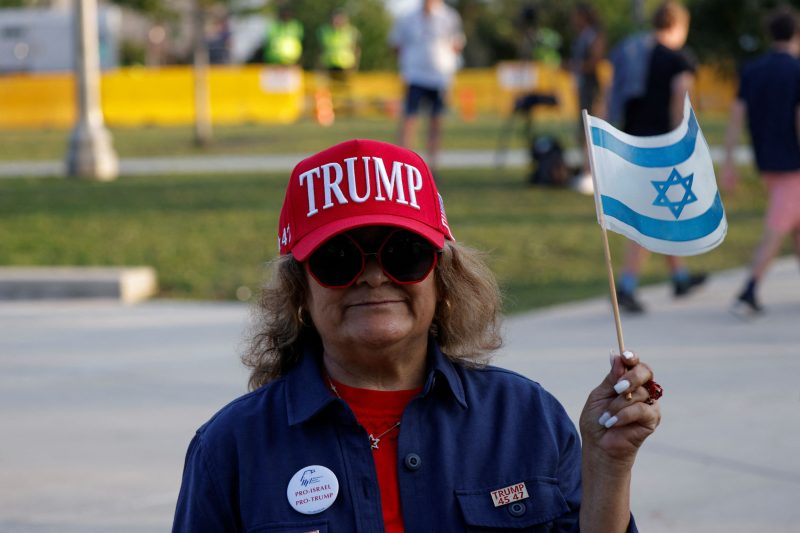In a recent turn of events, former President Donald Trump has resurfaced with controversial comments regarding who he deems to be a proper Jew. Trump, known for his incendiary remarks and polarizing behavior, proclaimed that he alone will determine who fits the criteria of being a legitimate Jew. This declaration has triggered a wave of responses from various groups and individuals, sparking debates on religious identity, political influence, and the boundaries of communal belonging.
Trump’s assertion of authority over defining Jewish identity has raised concerns among Jewish communities worldwide. The diversity within Judaism, encompassing different branches and interpretations of the faith, makes it a complex and multifaceted religion. By asserting his own criteria for what constitutes a proper Jew, Trump undermines this richness and imposes his narrow perspective on an ancient and diverse tradition.
Furthermore, the politicization of Jewish identity is not a new phenomenon. Historically, Jews have been subjected to attempts at defining and controlling their identity by external forces, often resulting in discrimination and oppression. Trump’s attempt to exert control over who is considered a legitimate Jew echoes these troubling historical patterns, raising alarms among those who value religious freedom and autonomy.
Moreover, the implications of Trump’s statement extend beyond the realm of religion, delving into the intersection of politics and identity. As a prominent political figure with a significant following, Trump wields influence that can shape public discourse and perceptions. By staking a claim on defining Jewishness, Trump injects his personal biases and agendas into a sensitive and deeply personal aspect of people’s lives.
The response to Trump’s assertion has been swift and varied. While some have dismissed his comments as a mere provocation, others have expressed outrage and concern over the implications of such statements. Jewish leaders, scholars, and activists have reiterated the importance of respecting the diversity and autonomy of Jewish communities, emphasizing the need to uphold the principles of religious pluralism and tolerance.
Ultimately, Trump’s attempt to unilaterally decide who is a proper Jew reflects a troubling trend of politicizing and weaponizing identity. By arrogating the authority to define religious belonging, Trump not only encroaches upon the rights of individuals to determine their own faith but also perpetuates harmful stereotypes and divisions within society. As debates continue to unfold over the boundaries of identity and belonging, it becomes increasingly crucial to uphold the values of inclusivity, diversity, and mutual respect in fostering a more harmonious and equitable world.


























